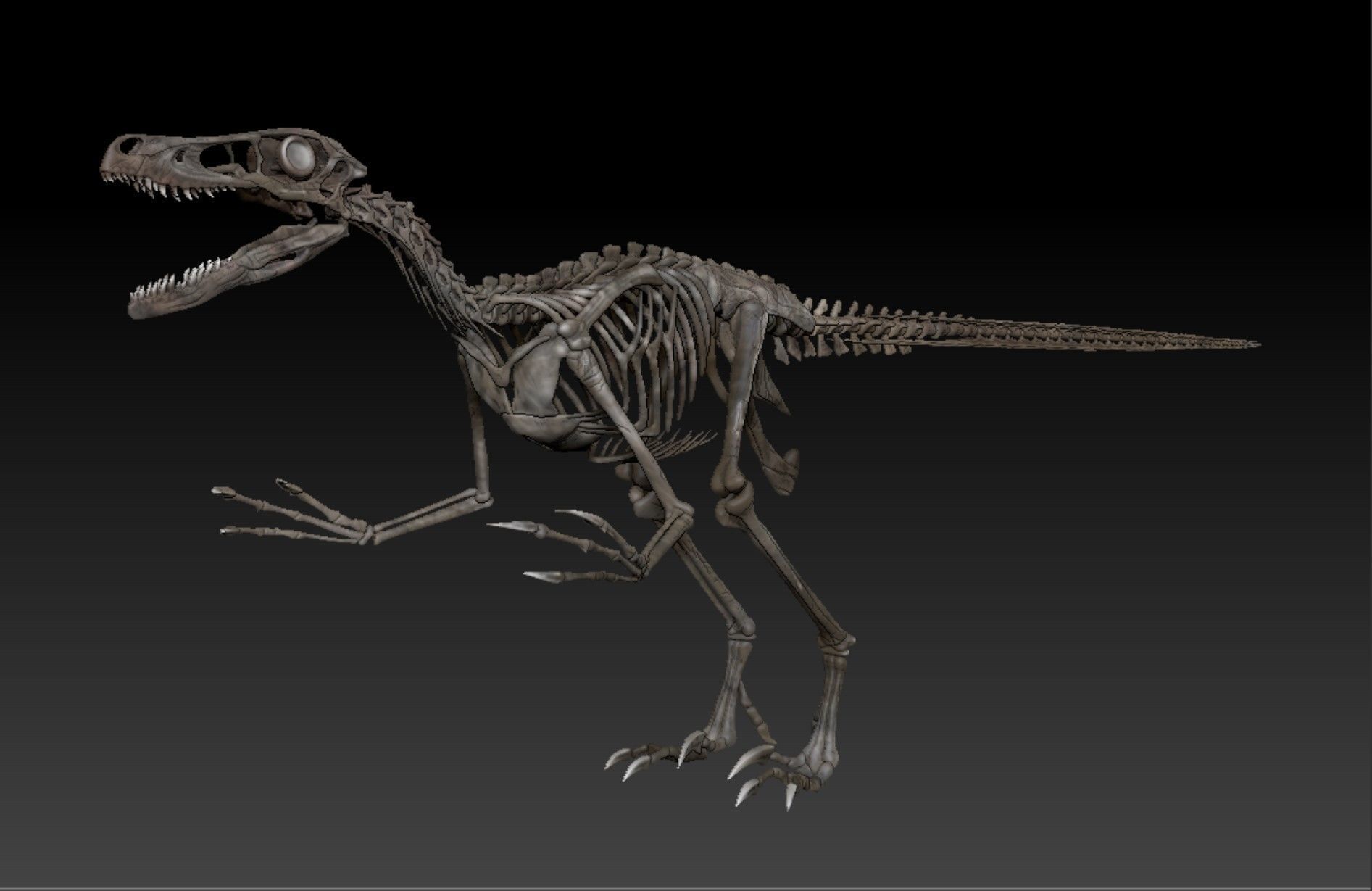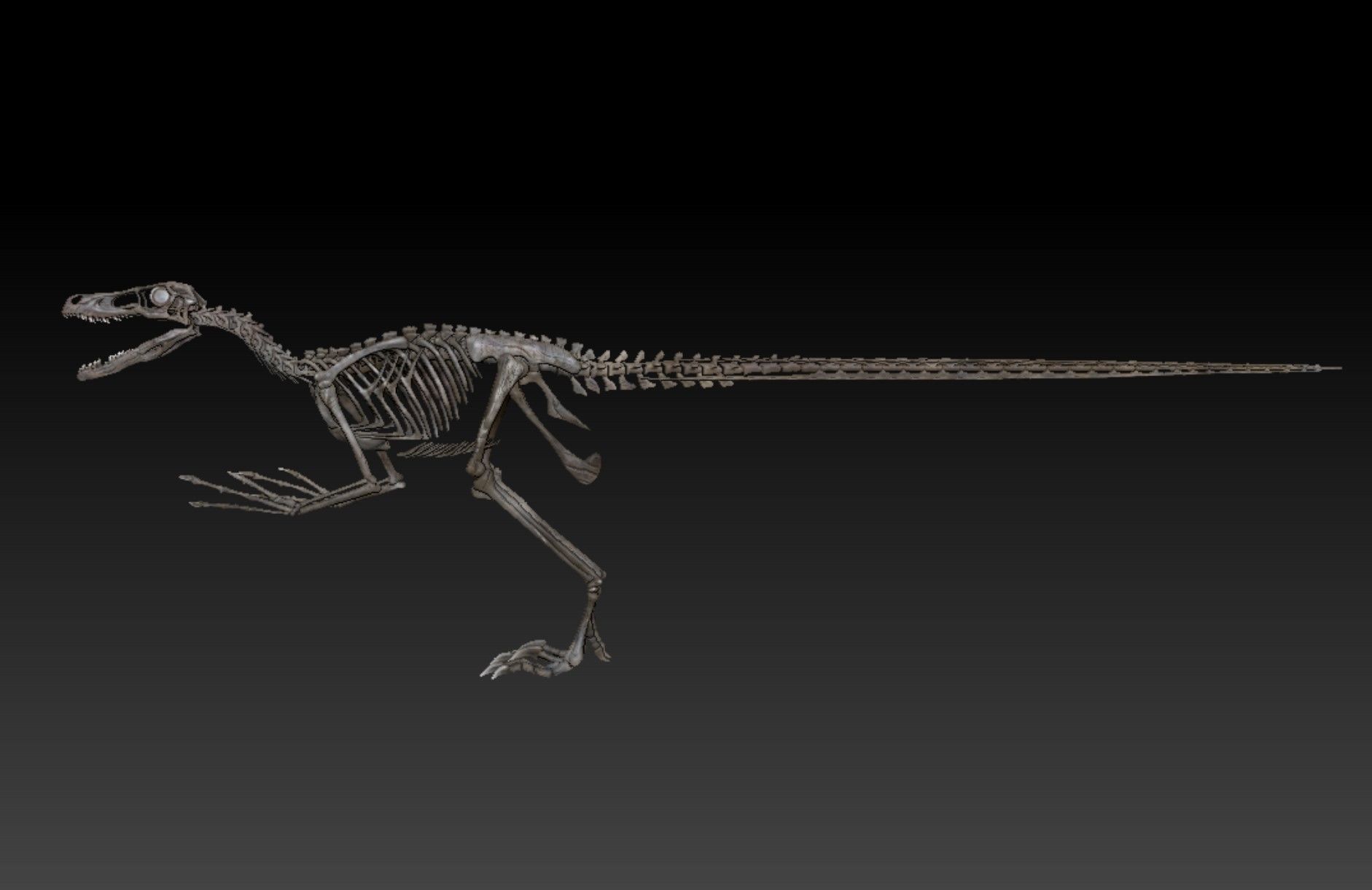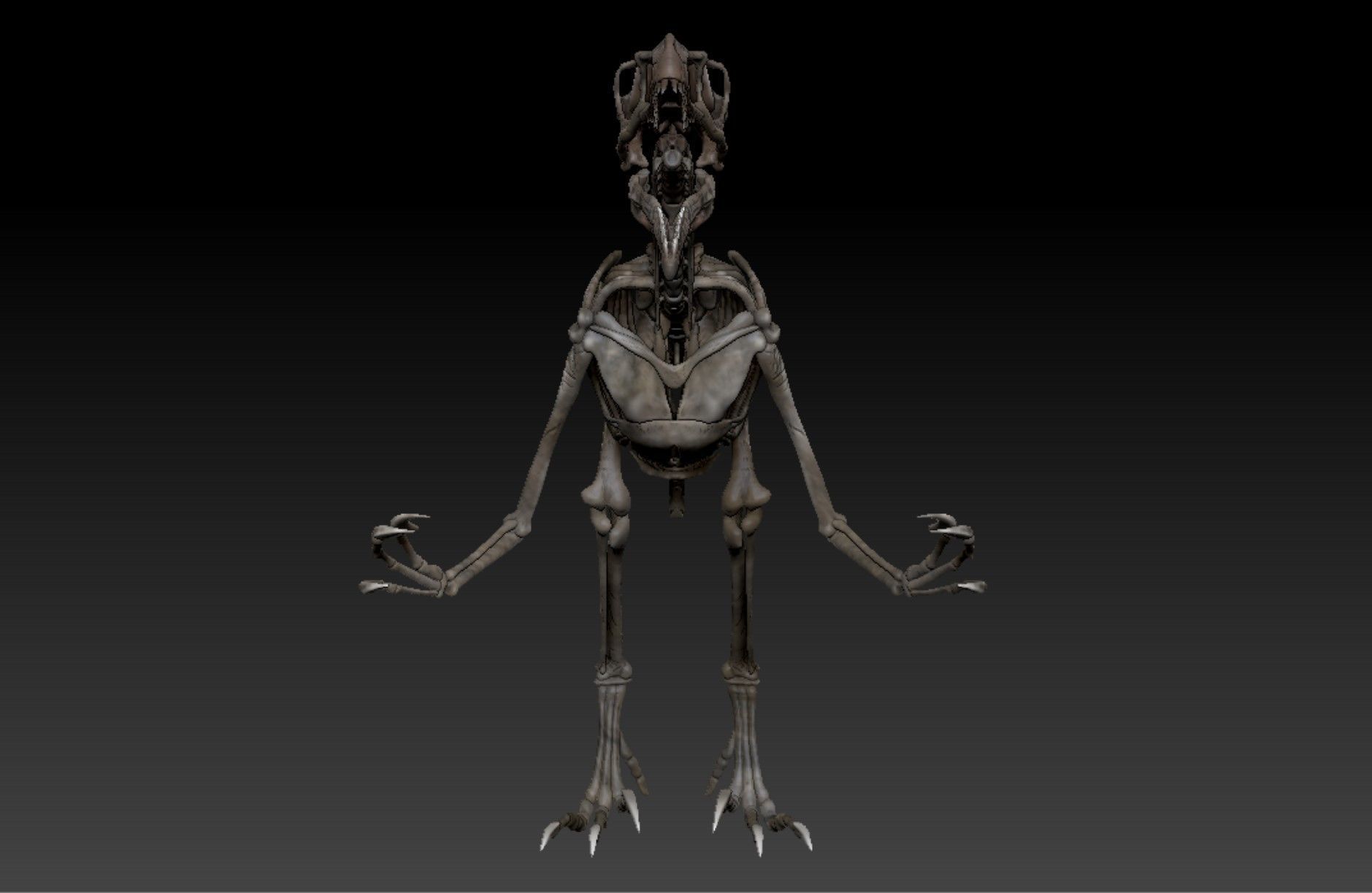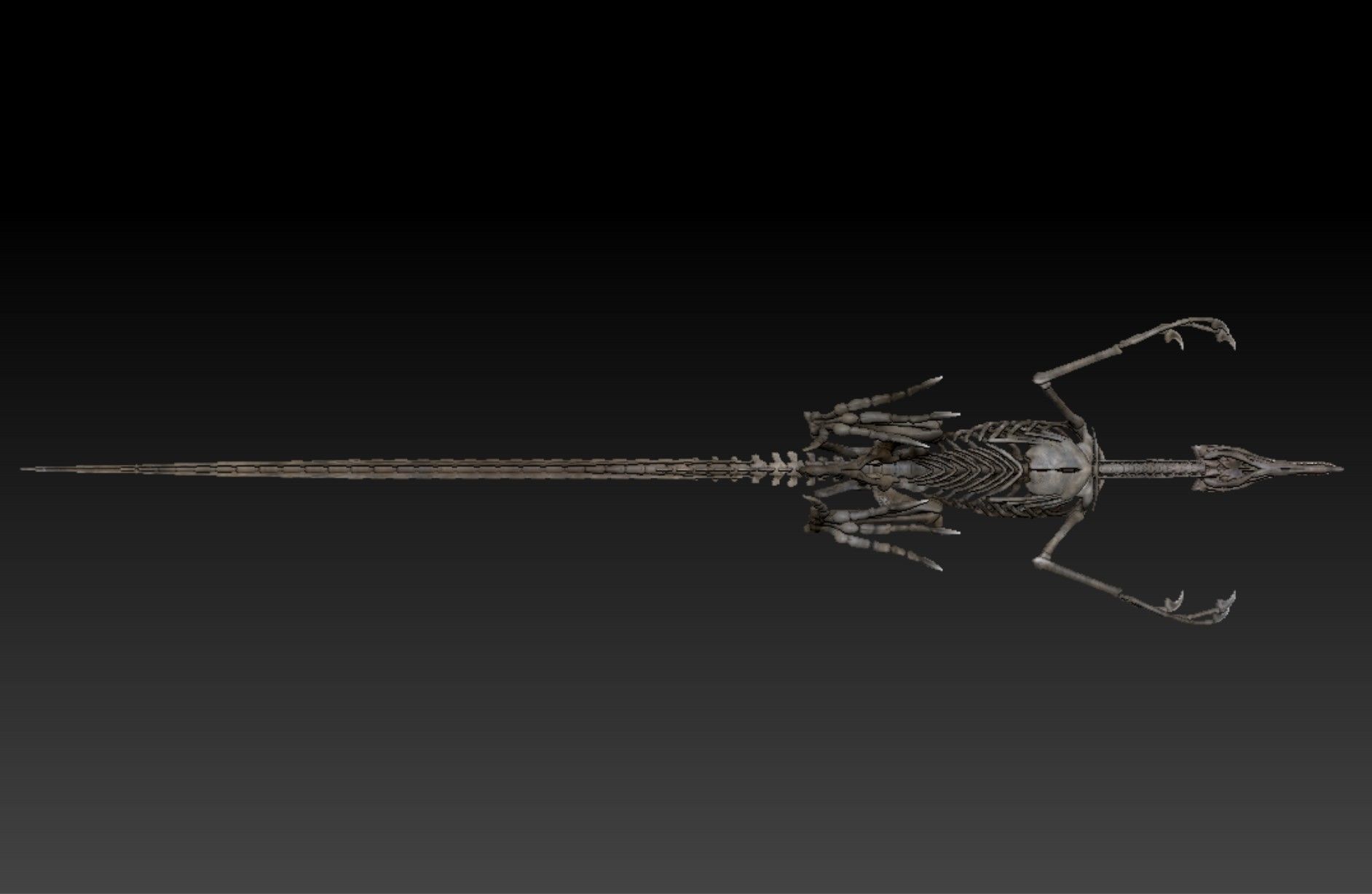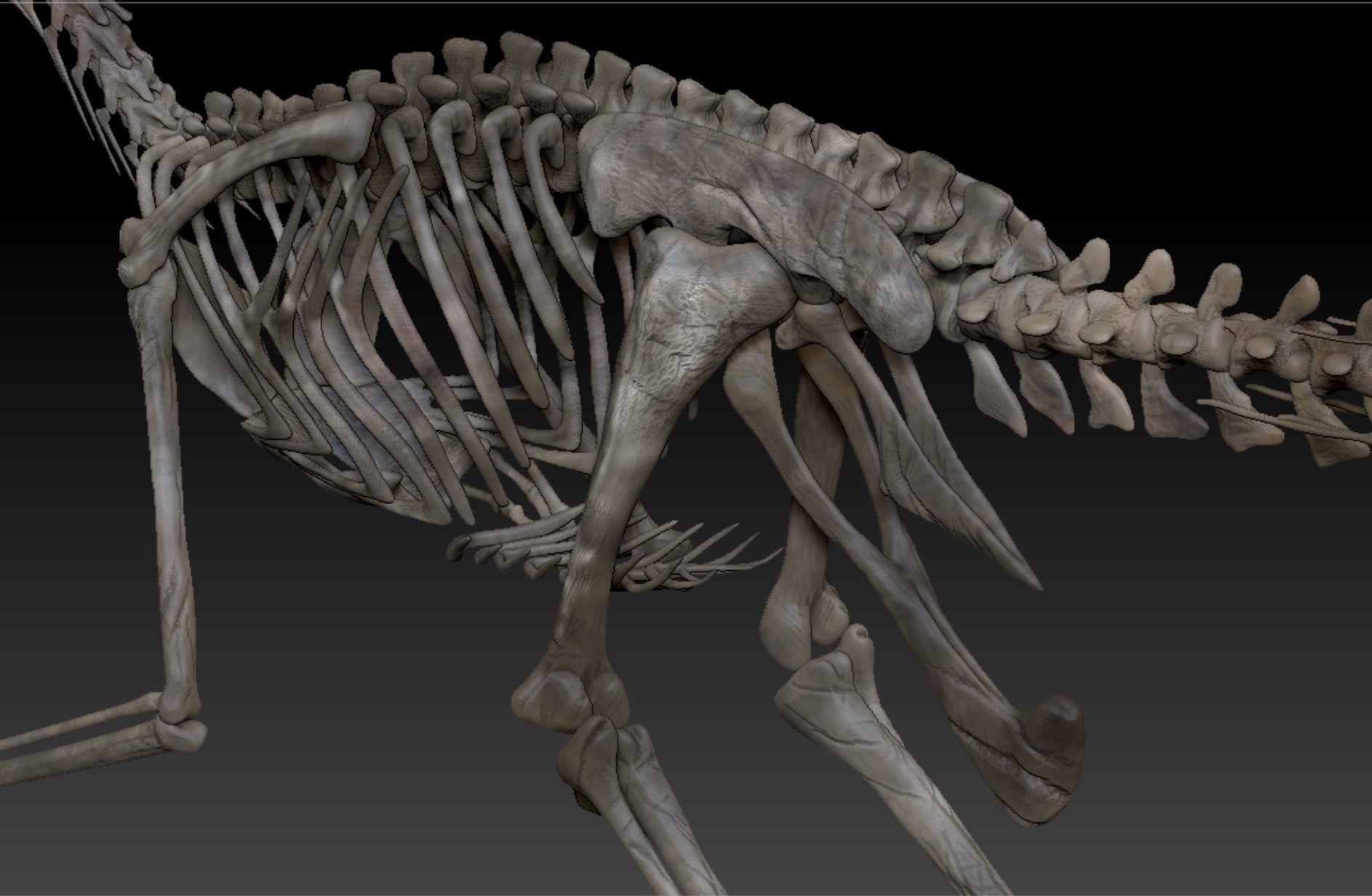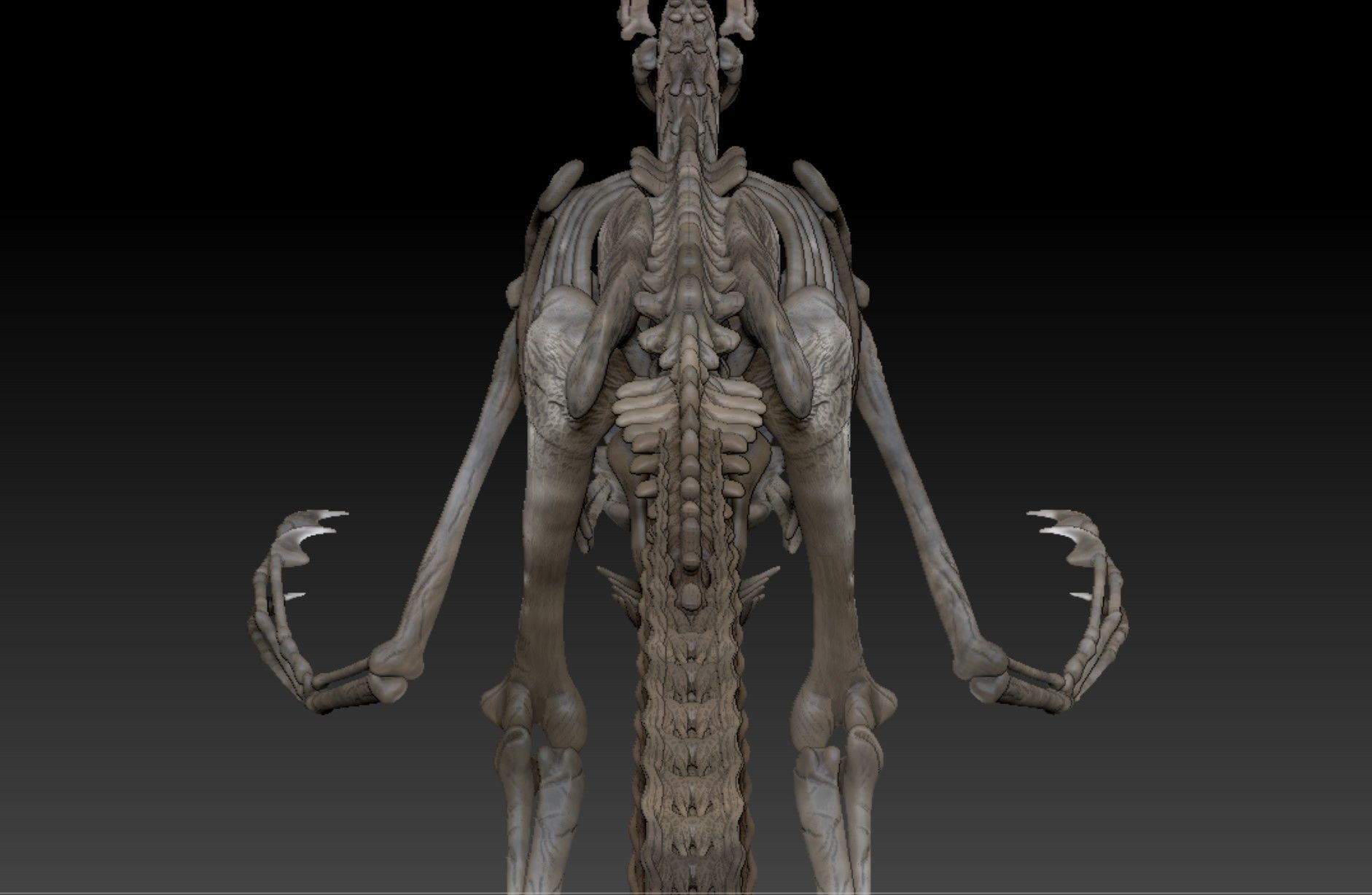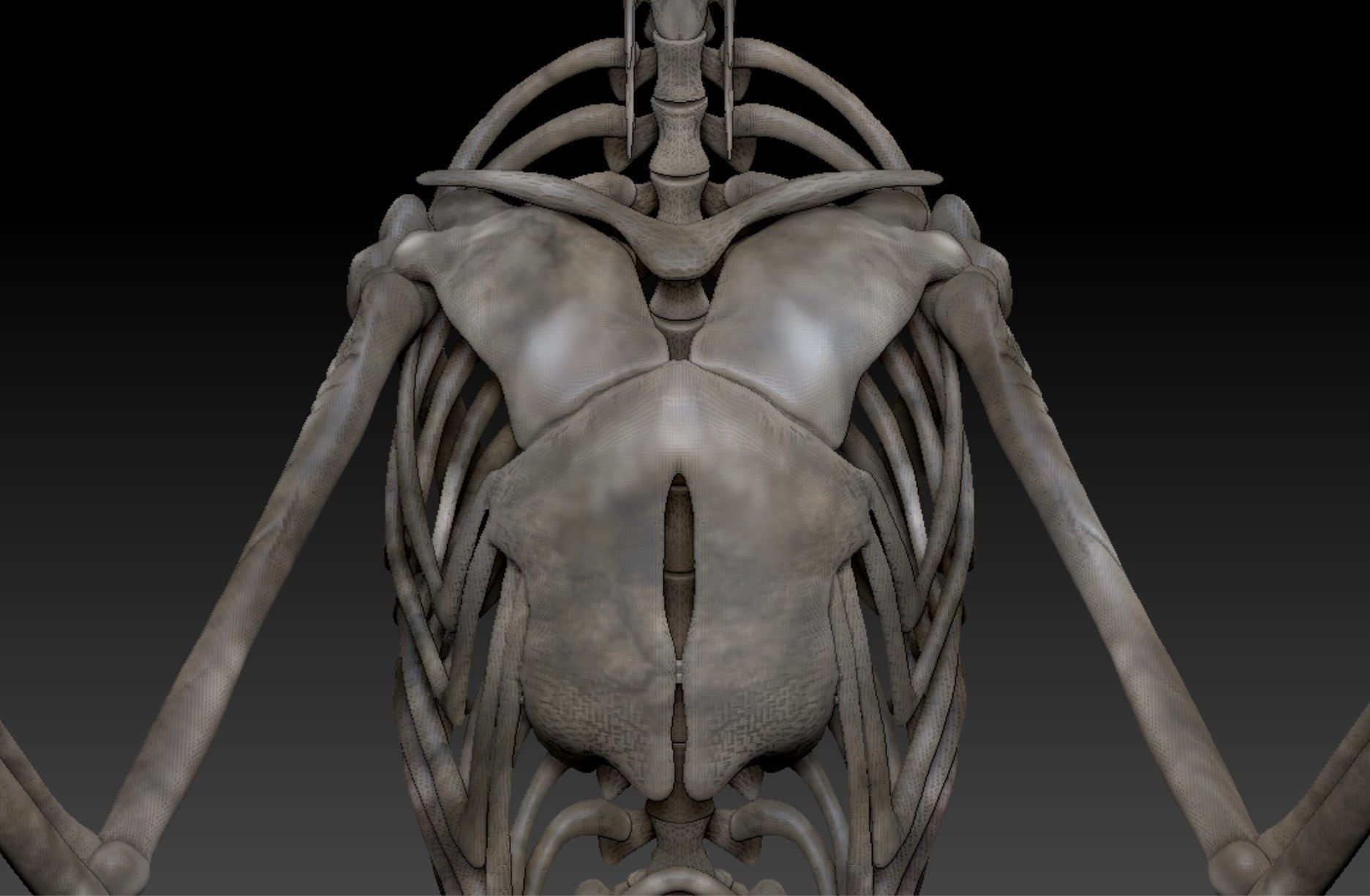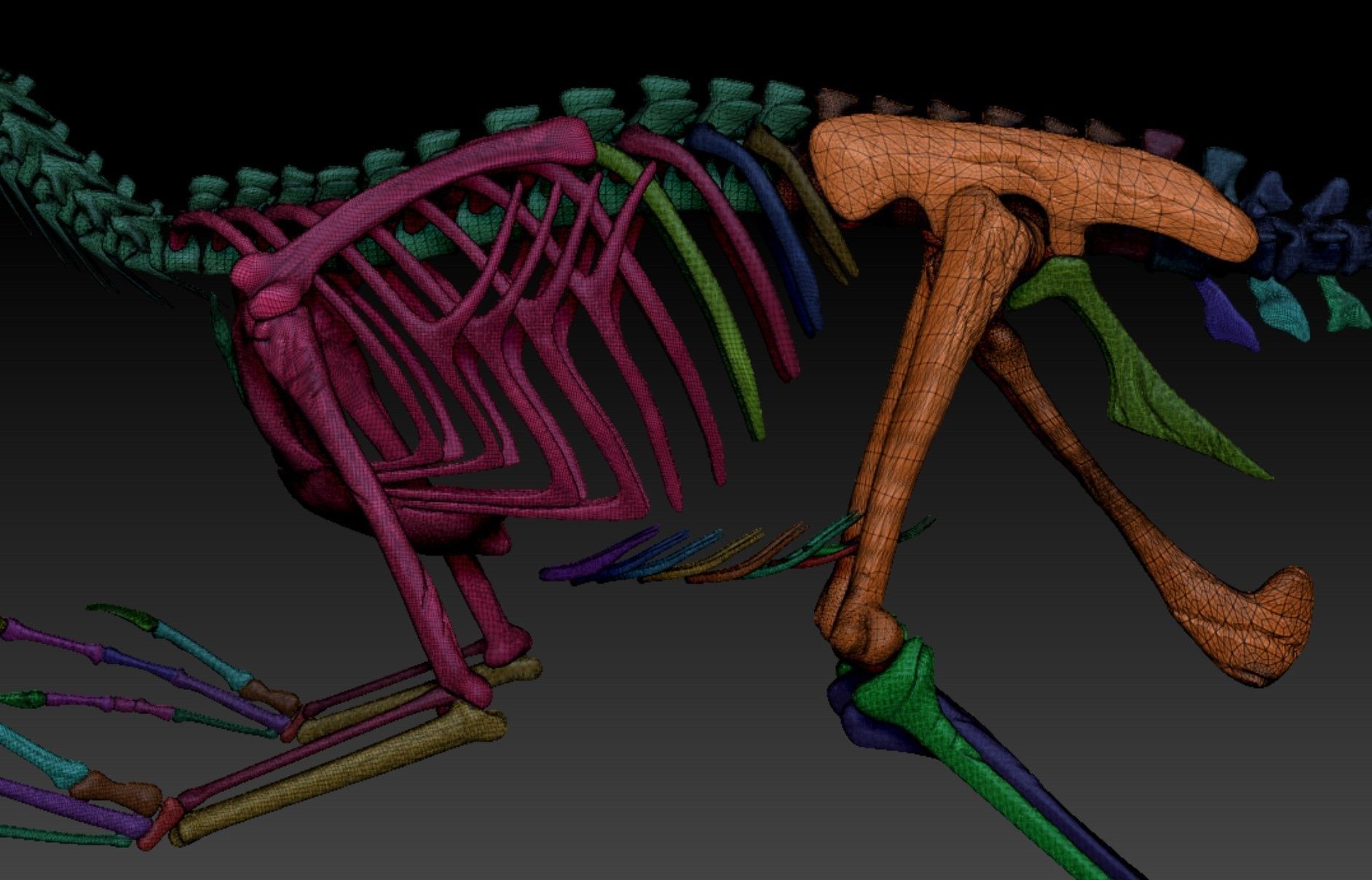
Velociraptor Skeleton - Full 3D Raptor dinosaur bones 3D model
This is the complete 3D model of Velociraptor dinosaur bones. The Velociraptor skeleton with realistic texture and mimic fossil rock of Velociraptor Dinosaur. There are wide range of formats: Ztl (zbrush), OBJ, PLY, Fxb... for animation, game, rendering or 3dprinting
The study of dinosaur skeletons is a crucial component of paleontology, the scientific study of ancient life. Paleontologists use dinosaur skeletons to understand the physical characteristics, behaviors, and evolutionary relationships of different species of dinosaurs.
Dinosaur skeletons can provide important information about how these ancient creatures moved, ate, and interacted with their environment. For example, the shape and structure of a dinosaur's skull and teeth can provide clues about its diet and feeding habits, while the length and arrangement of its limbs and tail can reveal how it moved and whether it was a fast runner or a slow, lumbering creature.
Dinosaur skeletons can also help scientists to reconstruct the evolutionary history of dinosaurs and their relationships to other groups of animals. By comparing the skeletons of different species of dinosaurs and looking for similarities and differences, paleontologists can build evolutionary trees that show how different groups of dinosaurs are related to each other and how they evolved over time.
Overall, the study of dinosaur skeletons is an essential part of our understanding of the history of life on Earth, providing valuable insights into the biology, behavior, and evolution of these fascinating creatures.
Velociraptor was a genus of small, predatory dinosaurs that lived during the Late Cretaceous period, around 75 to 71 million years ago. They were part of a larger group of theropod dinosaurs called dromaeosaurids, commonly known as raptors.
Experience the bone-chilling thrill of the Velociraptor, as its intricate skeleton reveals the secrets of one of the most feared predators of the dinosaur era.
The skeleton of Velociraptor is characterized by its small size and light build, as well as several distinctive features that set it apart from other theropod dinosaurs.
The skull of Velociraptor was relatively long and low, with a narrow snout and large eye sockets that suggest it had good vision. The jaws were equipped with numerous sharp, serrated teeth that would have been used to slice through flesh.
Velociraptor had a long, flexible neck, which would have allowed it to make quick, precise movements when hunting or fighting. Its arms were also relatively long and slender, with three fingers that ended in sharp claws. The second toe of each foot was modified into a large, sickle-shaped claw that could be used to disembowel prey or defend against predators.
The backbone of Velociraptor was made up of a series of small, flexible vertebrae, allowing it to make quick turns and twists. The tail was also flexible, with numerous vertebrae that helped to maintain balance and control during hunting or running.
Overall, the skeleton of Velociraptor was designed for speed and agility, allowing it to pursue and capture prey with deadly efficiency. Its powerful jaws, sharp teeth, and retractable sickle claw made it a formidable predator, and its keen senses and intelligence would have made it a worthy opponent for other animals in its ecosystem.
Explore the swift and deadly anatomy of the Velociraptor, a dinosaur built for speed, agility, and hunting!!!

